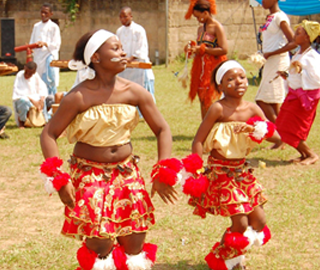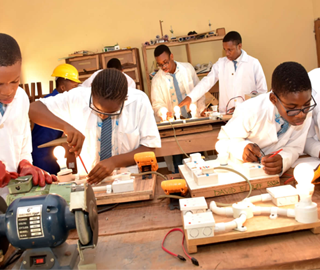The average pupil: teacher ratio in Rayfield International Secondary School is 15:1, which allows teachers to know the strengths and weaknesses of their students in-depth.
Rayfield has gone to great lengths to eradicate bullying from the school so that students will be free from threats from seniors; while parents may rest assured that their ward is in amicable environment.
At Rayfield, we used a combined curriculum of Nigerian and British/Cambridge curriculum to bring out a well-rounded student so that students may be able to excel anywhere in the world because they have been well prepared.
This information is available by contacting the school directly either by phone, email, or in person.
We at Rayfield are most proud of the performance of our students over the years. We have been recording 100% pass in WAEC and NECO for the past several years with several of our students earning A1 and A2 in their various subjects, due to our unique teaching and follow-up strategies for impacting our students.
This information is available by contacting the school directly either by phone, email, or in person.
At Rayfield Nursery we may have up to 20 students in a class while in the Primary section we may have up to 25 students. That may sound like a large class but each of our primary classes comes with 2 teachers; a class teacher and the subject teacher while in the nursery section we have the class teacher and the class assistant. Therefore each child gets the attention they need.
We have several methods of learning that we use to teach our students some of these are the Play method – using educational resources to impact ideas and knowledge; playing with the child while teaching them especially using songs. Another method is the Montessori method which involves practical learning using tools and replicas to build up intelligence.
Yes, we have bus service to most parts of the city and outside the city of Uyo.
We have various clubs to expose the child to other learning activities like French club, Young Diction Club, Home-makers club, and others where children learn French outside of the classroom; are taught in-depth diction articulation and pronunciation of words; and practicing beading, hat-making accessories and culinary skills respectively.
If you do not find the answer for your question, you can ask us by submitting it using form below:








